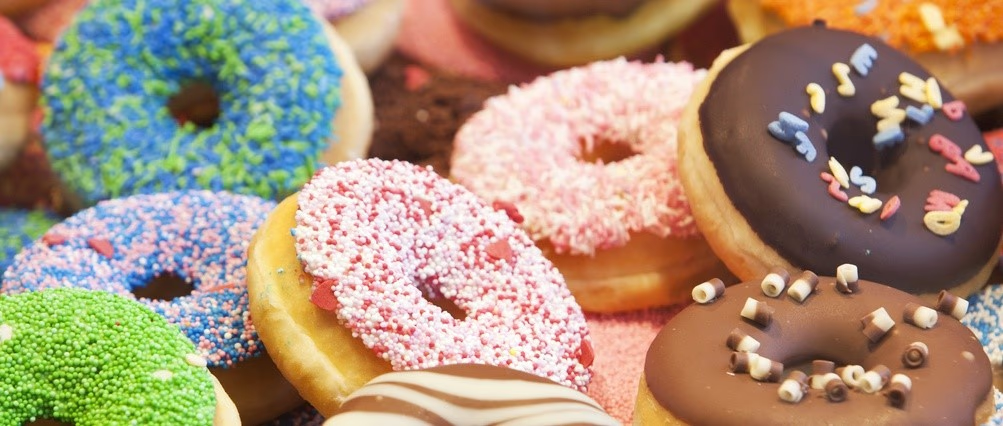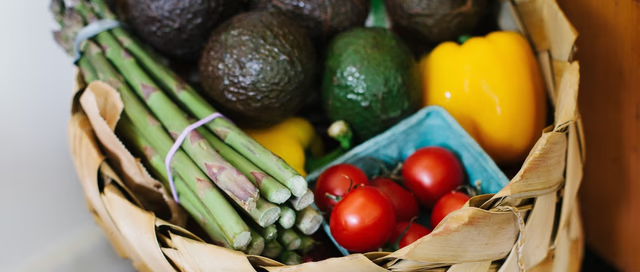
Why ultra-processed foods are so addictive - and how to cut down
Peer reviewed by Dr Krishna Vakharia, MRCGPLast updated by Lydia SmithLast updated 23 Nov 2023
If you've ever shopped in a supermarket and been drawn to the chocolate and crisps aisles, you're not alone. Ultra-processed foods aren't just tasty, they're also addictive - which can make it difficult to cut down on the amount you eat.
In this article:
Continue reading below
Ultra-processed foods are addictive
More than one half of the calories an average person in the UK eats and drinks come from ultra-processed foods (UPF)1. These are foods that have a long list of ingredients and contain lots of sugars, sweeteners, flavourings and other additives to give them a long shelf-life. Not only are they convenient, attractive and heavily marketed to us - think of those TV adverts that make your mouth water - research shows they may be as addictive as smoking2.
A recent study published in the British Medical Journal looked at why we're so drawn to UPFs, even though they've been linked to diseases like obesity, type 2 diabetes and even cancer.
After reviewing 281 studies from 36 countries, researchers found that 14% of adults and 12% of children were addicted to ultra-processed food3. The study used the Yale Food Addiction Scale which looks at symptoms such as difficulty controlling what we eat, cravings, withdrawal and continued consumption despite knowing the negative outcomes.
UPFs may be addictive because of the speed at which they send carbohydrates and fats to your gut. According to the research, the more quickly the brain is affected by these foods, the more addictive they are. This is why smoking a cigarette - which delivers nicotine very quickly to the brain - is more addictive than a nicotine patch that releases the chemical slowly.
Patient picks for Healthy eating
Why are ultra-processed foods so addictive?
There are several reasons why it's so hard to stop eating these types of foods. Firstly, they're high in refined carbohydrates and fats, which can cause many different reactions in the brain.
When we eat crisps, chocolate and other sugary or fatty foods, the region in the brain responsible for motivation and reward is activated. Chemicals like endorphins, which boost mood and reduce pain, and dopamine - linked to pleasure and satisfaction - are released into our bodies. This makes us feel good, which in turn makes us want to eat more UPFs.
Secondly, foods with a high fat and sugar content change our brain. If we regularly eat even small amounts of them, the brain learns to eat these types of foods in the future4.
To test this theory, researchers gave one group of volunteers a small pudding containing a lot of fat and sugar every day for eight weeks on top of their usual diet. The other group received a pudding that had the same number of calories but less fat. The results showed that without even realising it, we learn to prefer high-fat snacks4.
Marc Tittgemeyer, from the Max Planck Institute, was one of the study leaders and he says that it's not easy to change this preference for fatty, sugary foods.
"Our measurements showed that the brain rewires itself when we eat chips - it subconsciously learns to prefer rewarding food. Through these changes in the brain, we will unconsciously always prefer foods that contain a lot of fat and sugar," he says.
"New connections are made in the brain, and they don't stop so quickly. After all, the whole point of learning is that once you learn something, you don't forget it so quickly."
Continue reading below
How to cut back on UPFs
This research has significant implications for preventing obesity and other diseases. So, how can you cut down the amount of ultra-processed foods you eat?
Food swaps are a good way to gradually cut back on sugary, fatty foods. Here are a few you can try:
Yoghurt - Instead of flavoured yoghurts with added sugar or sweeteners, go for plain Greek yoghurt and add your own fruit for flavour.
Bread - Switch from white bread to wholemeal and wholegrain loaves.
Cereal - swap sugar-laden breakfast cereals to fibre-rich cereals. Overnight oats soaked in Greek yoghurt with added fruit makes a filling, healthy breakfast.
Sauces - Instead of buying sauces or ready meals - which often contain additives and sugar - try batch cooking and freeze in portions to use another day.
Fizzy drinks - try sugar free drinks or milk. Add chopped fruits like frozen berries, kiwi and apple to your water.
Snacks - rather than crisps and biscuits, keep your kitchen stocked with nutritious snacks so it's easier to make healthy choices. Fresh fruit, nuts, edamame and hummus are all good options.
Always read the label to see how healthy - or not - your food is. Often, a traffic light system is used on food packaging to tell you how much sugar or fat the item contains - and green indicates a healthier amount.
Further reading
Article History
The information on this page is written and peer reviewed by qualified clinicians.
23 Nov 2023 | Latest version
23 Nov 2023 | Originally published
Authored by:
Lydia Smith

Feeling unwell?
Assess your symptoms online for free
